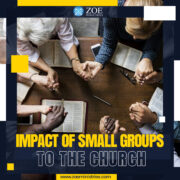The Salt and the Light
The Salt and the Light
A Command for Believers
Jesus declared that those who follow him are the “salt” and the “light” of the world. These were not suggestions. These were not options. Jesus did not say, “You can be the salt” or “you have to potential to be the salt.” He is talking about your very being. Christ was describing your nature as a believer living in the world. He said you are the salt and the light.
We cannot underestimate the value of salt. In the ancient world, the context by which Jesus used the term “salt” metaphorically refers to Roman soldiers who received their wages in salt. The Greeks even considered salt to be divine. God required all offerings presented by the Israelites to contain salt under the Mosaic Law (Leviticus 2:13).
When Jesus called the disciples to be the salt of the earth in Matthew 5:13, they understood the metaphor. They understood their job description as Insiders. Did you know that salt was not readily available in the modern world during that time? In the same way, what you offer as believers is not readily available in your industries.
The Distinction of Salt
What are the characteristics of the salt that caused Jesus to use this symbol? Salt preserves food. Before people created the refrigerator, they used salt to keep food in ancient times.
Salt had a property that stopped decay. The disciples were aware of the value of salt. Without salt, the fish they had caught will spoil quickly. They needed to pack it in salt to preserve it. Jesus intended you to work as an Insider in the industry you are in to stop the moral decay in the sin-infected world of that area.
Salt needs to be lavished on the food to be preserved to stop the decay of this food. Salt, as a preservative, is only helpful if applied to meet that is riding. If you place to fish in one container and salt in another, the salt cannot preserve the fish. We see the pattern here, don’t we?
Insiders
We see that Jesus intended for us to be Insiders. There needs to be close contact between the believer and the world to impact the world and prevent moral decay. Moreover, the spiritual health and strength of the Christian are to counteract the corruption in the system. As Christians, we were never intended to exist in our own “holy” bubble until the time when Jesus came again. Therefore, we are called to be the salt of the earth.
Your weekly dose of prophetic wisdom and anointing awaits you. Join our LIVE Conference Call!
1) Call 515-604-9266
2) Go to startmeeting.com, and use the login: BishopJordan























